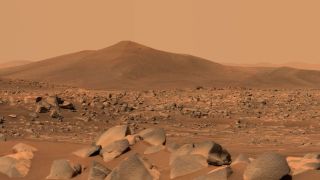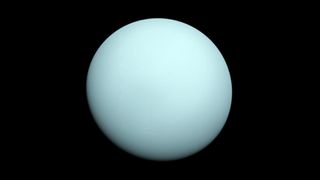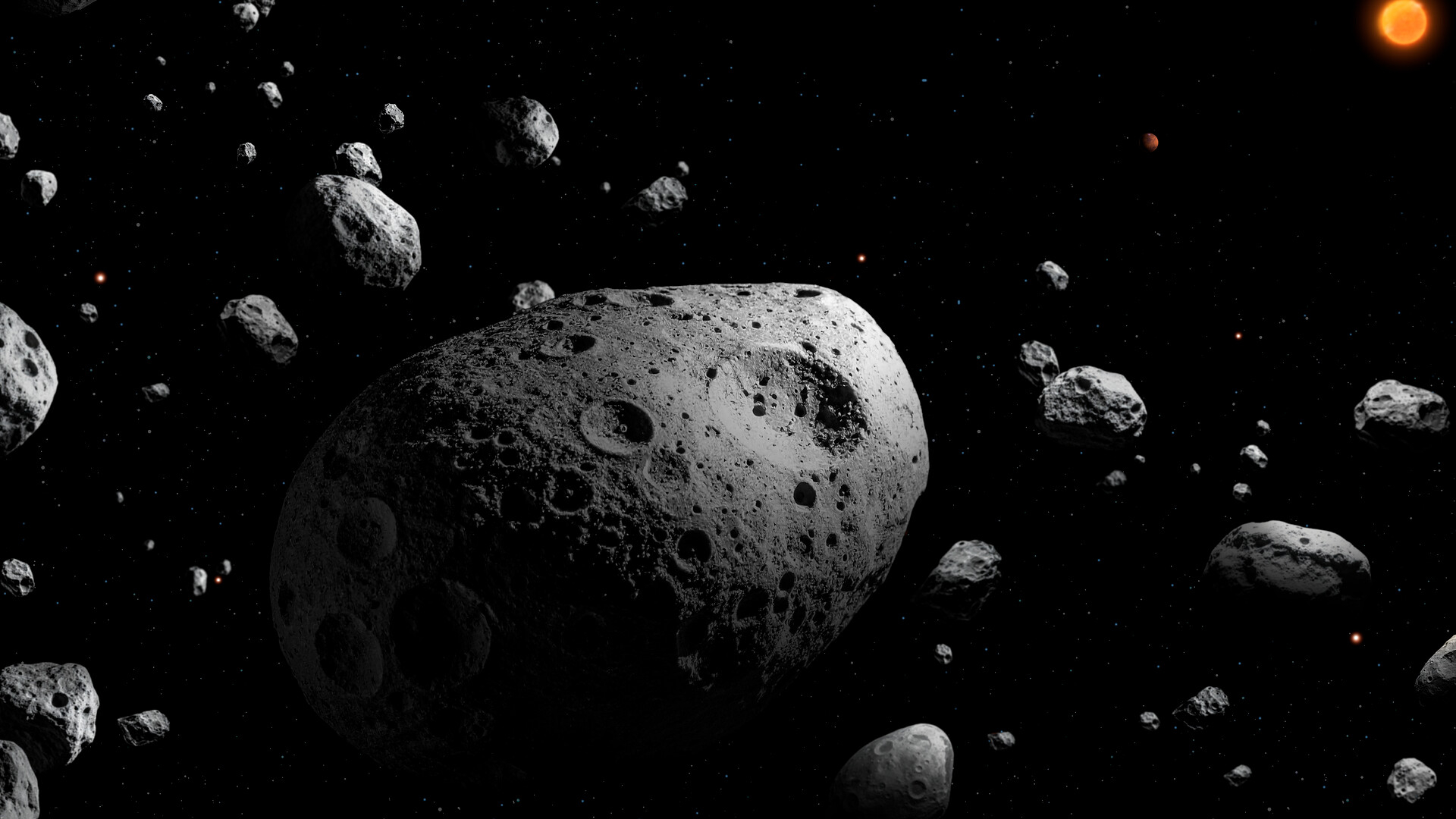Leonard David is an award-winning space journalist who has been reporting on space activities for more than 50 years. Currently writing as Space.com's Space Insider Columnist among his other projects, Leonard has authored numerous books on space exploration, Mars missions and more, with his latest being "Moon Rush: The New Space Race" published in 2019 by National Geographic. He also wrote "Mars: Our Future on the Red Planet" released in 2016 by National Geographic. Leonard has served as a correspondent for SpaceNews, Scientific American and Aerospace America for the AIAA. He has received many awards, including the first Ordway Award for Sustained Excellence in Spaceflight History in 2015 at the AAS Wernher von Braun Memorial Symposium. You can find out Leonard's latest project at his website and on Twitter.
Latest articles by Leonard David
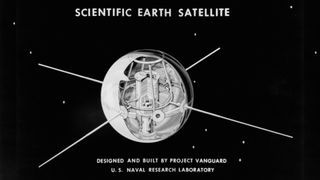
Vanguard 1 is the oldest satellite orbiting Earth. Scientists want to bring it home after 67 years
By Leonard David published
A team that includes aerospace engineers, historians and writers have proposed retrieving the 67-year-old Vanguard 1 satellite from orbit.

Capturing the cosmos on canvas: How art helps scientists and space agencies communicate with the public
By Leonard David published
Astrophysicist and artist Ed Belbruno explains how art helps scientists communicate their work to the public and even discover solutions to spaceflight and astronomy problems.
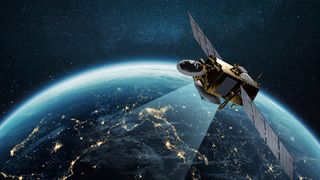
Space pirates already have their sights set on the 'high seas' of Earth orbit. Can we stop them?
By Leonard David published
Experts are already looking into the risks of piracy in space and solutions to this potentially devastating economic and legal problem.
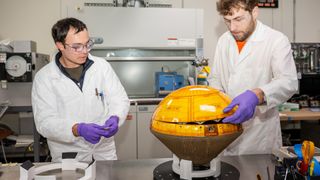
The 1st private mission to Venus comes together ahead of possible 2026 launch (photos)
By Leonard David published
The first private spacecraft mission to Venus, Rocket Lab's Photon Spacecraft, will take on the planet's hellish conditions with the aid of a novel woven heat shield called "HEEET."
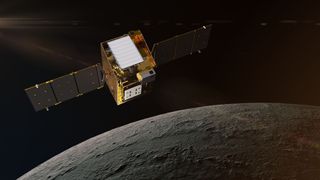
Low on power and spinning out of control, NASA's Lunar Trailblazer moon probe's future looks grim
By Leonard David published
It's been a week since NASA lost contact with its new water-hunting moon satellite.
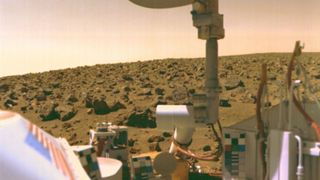
Is it time to revisit what NASA's Viking lander found on Mars in 1976?
By Leonard David published
A new study reconsiders the controversial findings of NASA's Viking Mars lander in 1976, which some argue may have shown signs of past life on the Red Planet.
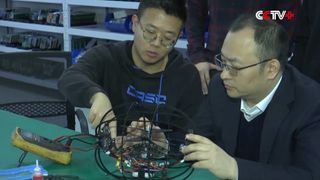
A Chinese research team is developing a lightweight robotic drone that could aid the nation's Mars exploration ambitions.
By Leonard David published
"On the ground, it mainly rolls by shifting its center of gravity."
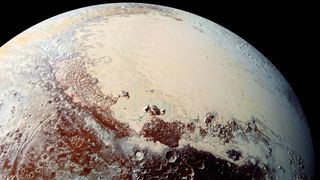
Leaving Pluto in the dust: New Horizons probe gearing up for epic crossing of 'termination shock'
By Leonard David published
NASA's New Horizons Pluto probe is gearing up to cross the "termination shock," an exotic boundary in the outer solar system, as early as 2027.
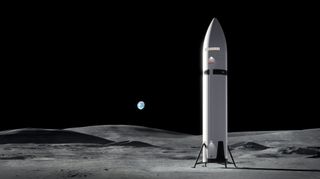
Risks with current Artemis 3 moon landing plan 'may be too high,' NASA safety group says
By Leonard David published
An annual safety report to NASA has both praise and also underscores a number of cautionary woes, including the space agency's Artemis undertaking to return astronauts to the moon.
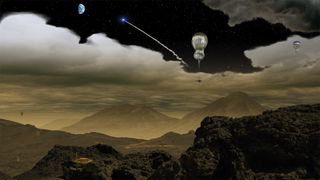
Exploring Venus may require exotic tech like balloons and 'aerobots'
By Leonard David published
Scientists are proposing ways to explore Venus in the next decade and beyond by way of a host of advanced technologies, from balloons to long-lived landers.
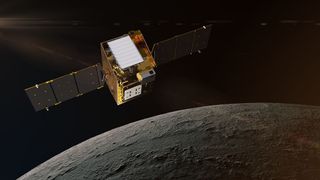
SpaceX to launch water-hunting moon probe 'Lunar Trailblazer' on Feb. 26
By Leonard David published
NASA's Lunar Trailblazer probe has made it to Florida's Cape Canaveral to prep for its launch to the moon, which could occur as soon as Feb. 26.
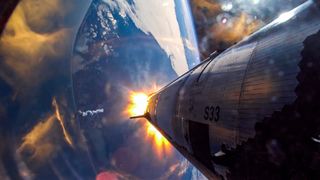
Falling space debris is a growing worry for aircraft, new research suggests
By Leonard David published
Uncontrolled space debris reentries are of growing concern for air traffic, as SpaceX's recent Starship Flight 7 showed.
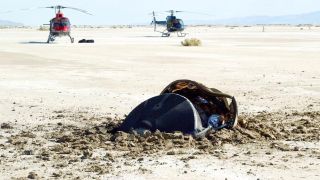
20 years after crashing in the Utah desert, NASA's Genesis mission is still teaching us about solar wind
By Leonard David published
Despite crashing in the Utah desert in 2004, NASA's Genesis mission is still helping scientists study the effects of solar wind.
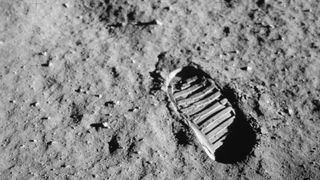
Moon selected as historical preservation site to protect lunar heritage
By Leonard David published
The World Monuments Fund has added the moon to its watch list of 25 historic places that face major challenges and has called for preserving lunar heritage.
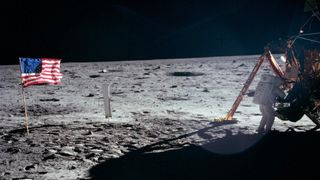
What happened to the flags Apollo astronauts left on the moon?
By Leonard David published
Astronauts placed six different American flags on the moon during the Apollo program. What became of those flags in the years since, and why were they controversial?
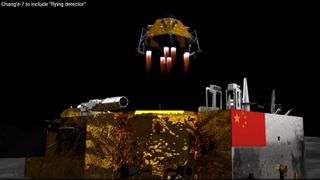
China plans to plant a waving flag on the moon in 2026. Here's how
By Leonard David published
China's Chang'e 7 moon-landing mission will apparently include a flag that can flutter in the moon's thin and tenuous atmosphere.
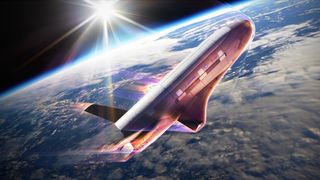
Space Force's secretive X-37B space plane soars past 1 year in orbit
By Leonard David published
The U.S. Space Force X-37B Orbital Test Vehicle (OTV-7) has silently slipped past one-year of flight time.
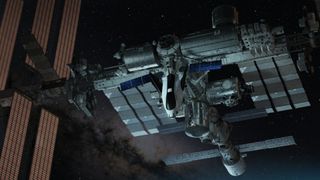
How NASA and Sierra Space are preparing for Dream Chaser space plane's 1st flight to ISS
By Leonard David published
Sierra Space and NASA's Johnson Space Center are conducting simulations to prepare for the Dream Chaser space plane's first flight to the International Space Station.
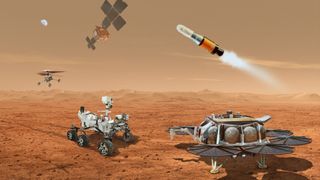
Can NASA's troubled Mars Sample Return mission be saved?
By Leonard David published
An independent review team is delivering a final report to NASA leadership to determine if the agency's Mars Sample Return mission is salvageable after facing scrutiny for its $11 billion budget.
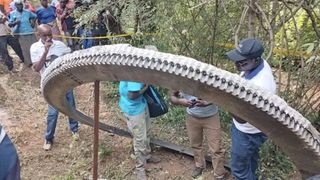
Space debris crash in Kenya village believed to be from leftover rocket hardware
By Leonard David published
Kenya Space Agency officials report a large, “red-hot” metallic ring roughly 8 feet (2.5 meters) in diameter fell from the sky, crashing into Mukuku village.
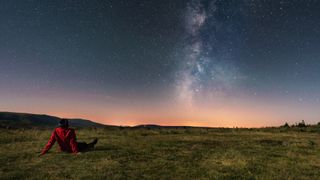
Understanding UFOs: What has to happen in 2025 to move the UAP story forward?
By Leonard David published
What should happen in 2025 to move the UAP/UFO story forward? Are we at a dead-end? Conversely, is the coming year one of "full disclosure?"
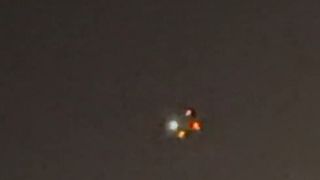
Planes, drones or UFOs: What are people seeing in the New Jersey sky?
By Leonard David published
Recent sightings of unidentified aircraft in New Jersey and other states have triggered another round of unanswered questions — and fueled conspiracy theories.
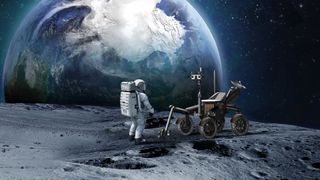
Meet Endurance, a pioneering NASA moon rover designed to survive the frigid lunar night
By Leonard David published
NASA has begun blueprinting the Endurance rover to traverse the gigantic South Pole–Aitken (SPA) basin, a wonderland of promising geological surprises.
Breaking space news, the latest updates on rocket launches, skywatching events and more!

